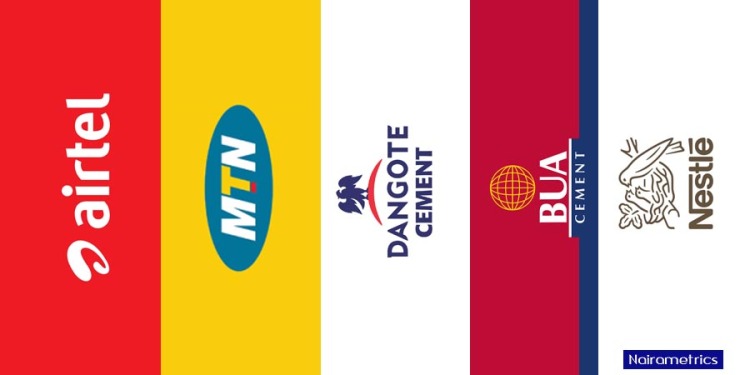In recent times, stakeholder management has become particularly important for businesses in Nigeria partly because of the increasing complexities of the political and business environment and the difficulty in navigating the murky waters of stifling regulation in Nigeria’s business environment.
These stakeholders include Governments at all levels, communities, consumers, and others. Lobbying has existed for centuries, however, in light of the Nigerian Government’s recent regulations across a number of sectors, it is imperative for businesses to up the ante with respect to influencing policies and laws within their operational domain.
The grand objective of such engagements is to sway legislation and policies in favour of your business. Essentially, lobbying in this context refers to the attempts of business owners to influence decisions made by the government, legislators or members of regulatory agencies. These activities can take a variety of forms, from professional lobbying on the part of specialised public affairs or legal firms to in-house lobbying undertaken by associations and NGOs, as well as the work of thinktanks in lobbying for certain ideas.
Why your business should lobby
To understand the techniques businesses employ to lobby for their interests, as well as the lengths to which they are prepared to go to safeguard these interests, we need to understand their incentives for doing so. There are three main rationales for businesses to develop a lobbying strategy:
- To achieve their business goals and sway regulation in their favour
- To respond to organisational needs
- To react to contextual pressures
Alongside advertising, public affairs and market communications, lobbying public decision-makers should also be a key component of your efforts as a business owner to maintain bottomline. In fact, according to a study of lobbying and public affairs in Europe, “in the global marketplace, to be competitive means increasingly being able to exert pressure on the government.”
Lobbying strategies – direct and indirect lobbying
There are two lobbying approaches for businesses to consider. Most lobbying approaches target decision-makers directly in an attempt to influence outcomes. Lobbying tactics that attempt to sway the outcome of a tender are almost invariably direct. Indirect approaches are more likely to be coordinated, industry-wide attempts to change the narrative around a given policy issue, and may include the establishment of front groups and the use of favoured “third-party” experts to disseminate industry-friendly material.
Direct lobbying
Lobbying strategies and tactics for businesses vary widely. What is common to nearly all of them, regardless of the political system a firm is operating in, is the importance of developing close personal contacts with public officials. Direct lobbying can come in any of the following forms:
Cultivating relationships with public officials
This relationship forms the interface between your business and the Government, and the more skilful you are at nurturing personal contacts with public officials, the more effective your business is likely to be at conveying its core demands to government.
Provision of expertise
Another way to lobby regulators is to seize any opportunity to provide “expertise” to government. One such channel is presented by the vast array of advisory groups that governments set up from time to time to provide advice on technical matters. An alternative tactic you can employ is to try to steer forthcoming laws by providing sympathetic legislators with specific amendments to draft legislation. Reportedly, some companies sometimes hire law firms to draft the amendments to make them look as professional as possible so that politicians can pass them off as their own work.
The revolving door
The “revolving door” can also be seen as part of a lobbying strategy for your business. This typically happens where a company or lobbying firm recruits ex-officials to exploit their good contacts and insider knowledge, or someone from the industry moves into an influential position in a public body. In some cases, the new public official is tasked with regulating the very same firms they previously worked for. After a period in public employment, they may then move back to the private sector.
Gifts and hospitality
Another form of direct lobbying involves companies providing public officials or legislators with gifts and hospitality. This could range from expensive dinners and presents to all-expenses paid trips to speak at an industry event. Such actions are often an attempt to curry favour with officials, in the hope that they will then reciprocate this “generosity” by looking kindly when overseeing and regulating the company.
Indirect lobbying
Engaging like-minded companies
Indirect approaches to lobbying tend to rely on coordinated, industry-wide attempts, in which firms ally with market competitors to ensure business-friendly outcomes. In fact, most large corporates lobby both individually to pursue their specific interests and as part of broader industry coalitions.
Flexing economic muscle
A common lobbying tactic using “outsider” channels is for businesses to seek to influence public policy by publicly warning of the effect a proposed measure would have on the market and especially on job losses. Vocal expressions of displeasure can be an effective means of killing off initiatives to which business is opposed.
The bottom line
Political power is essentially about influencing. It is about persuading the lawmakers to your cause – lobbying for your specific interests. Businesses, just as individuals, want to persuade the decision-makers that their ideas, needs and desires deserve a fair hearing.
For your business to become a force within the lobbying landscape, one would need skills such as networking, research, design/systems thinking, negotiation, communication (both oral and verbal) alongside core technical skills required for drafting and analysing laws or policies.






















